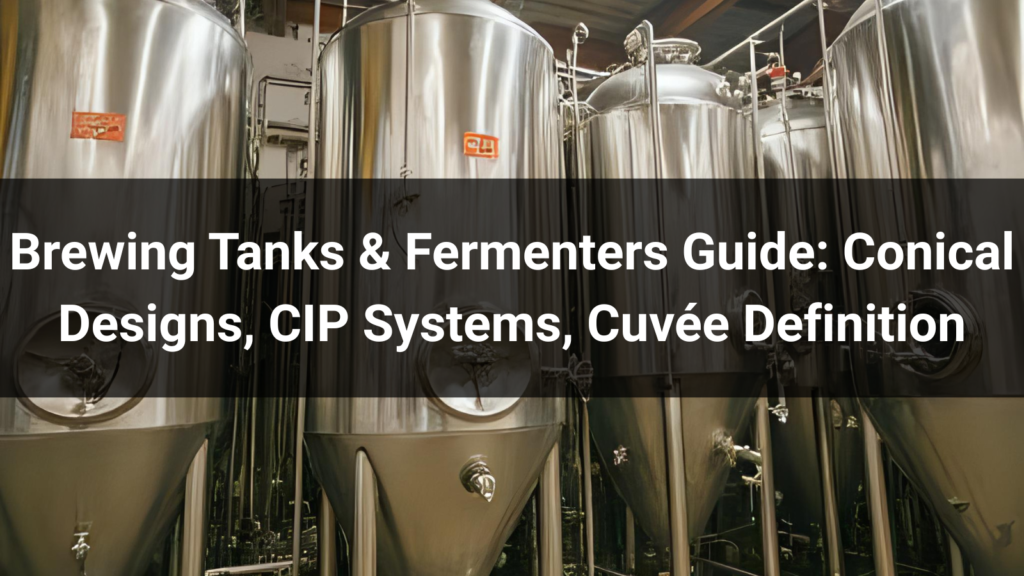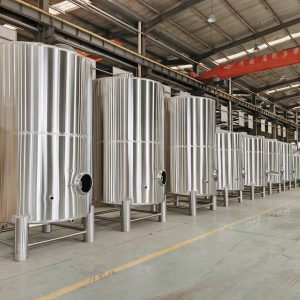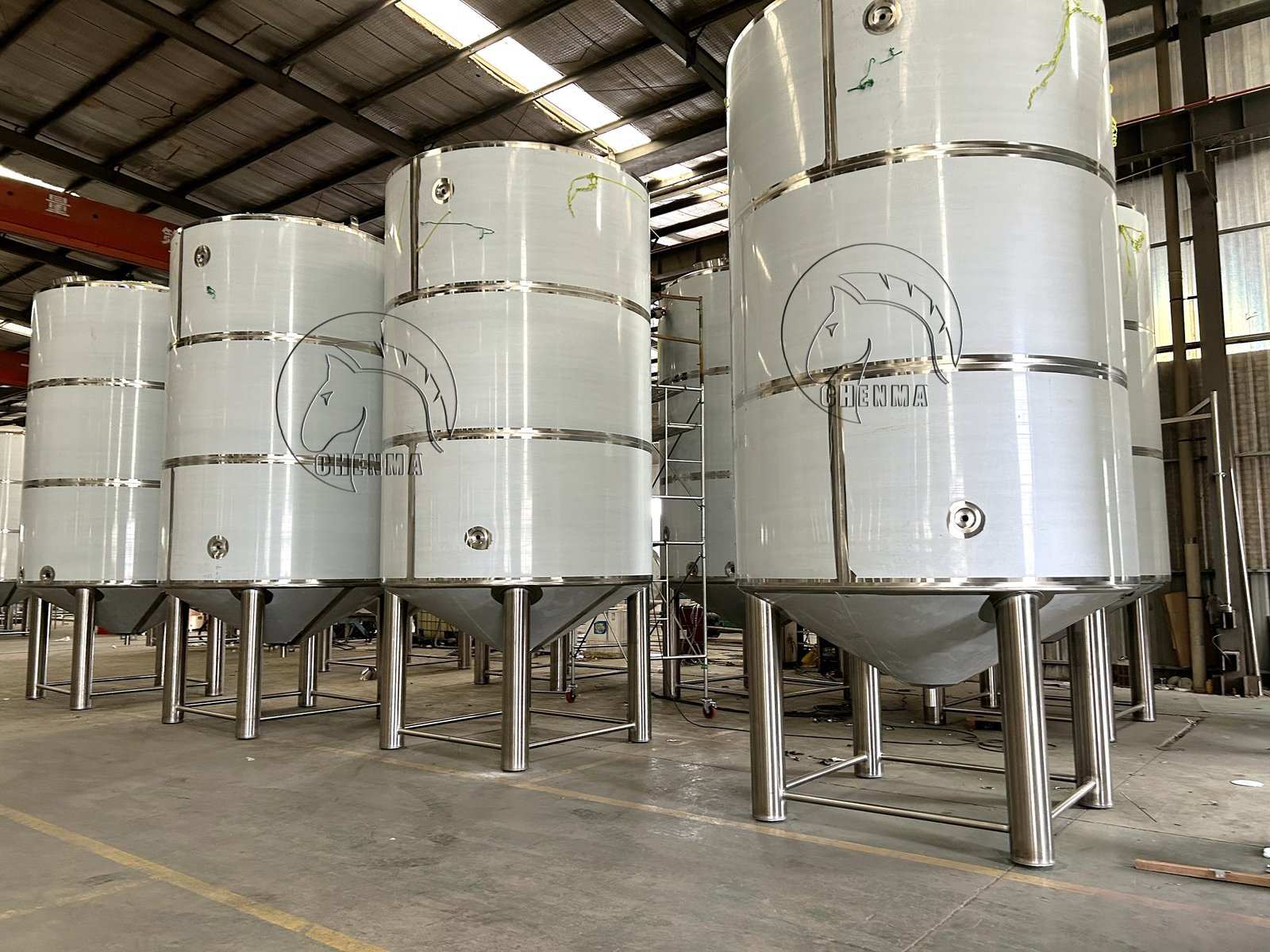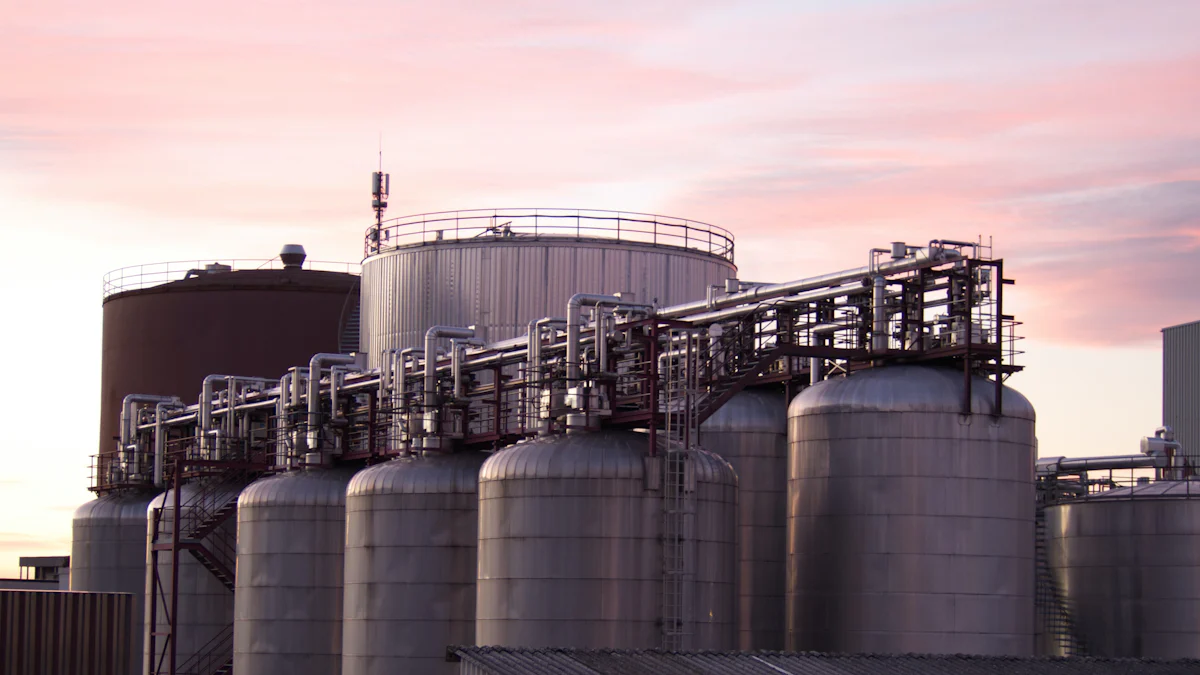
This definitive guide explores essential brewing equipment like conical fermenters, brite tanks, and CIP systems
while clarifying terminology such as cuvée, BPVC, and delestage. Learn how proper tank selection impacts beverage
quality across beer, wine, and specialty applications like black birch wine production.
Table of Contents
- Brewing Terminology Decoded
- Fermentation Tank Technologies
- Mash Tun Design Innovations
- Brite Tanks & Carbonation Systems
- Pressure Vessel Certifications
- CIP Cleaning Systems
- Specialty Applications
- Chenma’s Custom Solutions
Brewing Terminology Decoded
What is Cuvée/Cuve?
Cuvée (French: cuve meaning “vat” or “tank”) refers to:
- A specially blended wine or champagne
- The contents of a single fermentation vessel
- In brewing, denotes premium batches from specific tanks
Chenma’s variable capacity tanks enable precise cuvée management through
adjustable headspace.
Understanding Delestage
Delestage (rack-and-return): A red wine technique involving:
- Draining juice from fermentation tank
- Separating from grape solids
- Returning liquid to restart fermentation
This oxygenates must while extracting color. Requires tanks with
bottom-draining capabilities like Chenma’s conical fermenters.
Defining Beer Fundamentals
Beer: An alcoholic beverage created through:
- Mashing grains (typically barley)
- Boiling with hops
- Fermenting with yeast
Quality depends on proper temperature-controlled fermentation tanks.
Fermentation Tank Technologies

Conical Fermenters: The Industry Standard
Conical stainless steel fermenters feature:
| Feature | Benefit |
|---|---|
| 60° sloped bottom | Yeast/trub collection |
| Jacketed walls | Precise temperature control |
| Closed design | Oxygen exclusion |
Chenma’s conical
fermenters for sale include 304/316L stainless options with 0.4µm Ra polish.
Fermenter Type Comparison
Major fermenter types:
- Open-top: Traditional, risk of contamination
- Closed tanks: Anaerobic fermentation, pressure-rated
- Conical: Yeast harvesting, CIP efficiency
For black birch wine production, Chenma recommends closed stainless steel tanks to preserve delicate botanical flavors.
Mash Tun Design Innovations

Bottom-Drain Mash Tuns
Bottom-drain mash tuns improve lautering through:
- False bottom filtration (1-2mm slots)
- Central drainage port
- 60° cone angle for complete grain evacuation
Prevents stuck mashes – critical for high-adjunct beers. Chenma’s custom designs feature raking arms
and steam jackets.
Mash Temperature Management
Optimal enzymatic activity requires:
- Protein rest: 45-55°C (113-131°F)
- Saccharification: 62-67°C (144-153°F)
Chenma integrates glycol
jacketing with ±0.5°C accuracy in all mashing vessels.
Brite Tanks & Carbonation Systems
Brite Beer Tank Functions
Brite tanks (bright beer tanks) serve dual purposes:
- Conditioning: Yeast sedimentation (3-7 days)
- Carbonation: CO₂ infusion at 10-15 PSI
Chenma’s stainless steel brite tanks
include carbonation stones and sample valves.
Carbonation Tank Mechanics
Carbonation tanks require:
- Pressure rating: 2x operating PSI
- In-line carbonation stones (0.5-2µm porosity)
- Temperature control (0-4°C)
Cap tanks (capture tanks) collect excess CO₂ during fermentation for reuse. Chenma’s integrated systems reduce gas waste by
40%.
Pressure Vessel Certifications
Understanding BPVC and ASME
BPVC (Boiler and Pressure Vessel Code): The ASME standard governing:
- Design calculations
- Material thickness
- Welding procedures
- Pressure testing protocols
Chenma’s ASME-certified
pressure vessels include U-stamp documentation for global compliance.
Certification Requirements
Vessels over 15 PSI typically require:
| Region | Standard |
|---|---|
| USA/Canada | ASME BPVC Section VIII |
| Europe | PED 2014/68/EU |
| Australia | AS/NZS 1200 |
All Chenma pressure-rated tanks include
1.5x hydrostatic test certification.
CIP Cleaning Systems
CIP Tank Fundamentals
CIP (Clean-in-Place) systems comprise:
- CIP tank: Solution reservoir (NaOH, HNO₃)
- Cart: Mobile pump unit (3-7 HP)
- Spray balls: 360° coverage (GPM matched to tank)
Chenma’s CIP tanks feature conical
bottoms for complete drainage.
4-Stage Cleaning Protocol
Effective CIP tank cleaning sequence:
- Pre-rinse: 5-10 minutes (40-50°C)
- Caustic wash: 30-45 minutes (1-2% NaOH at 70-80°C)
- Acid rinse: 20 minutes (0.8% HNO₃ at 50-60°C)
- Final rinse: 10 minutes (sanitized water)
Chenma’s automated CIP carts
reduce cleaning time by 35%.
Specialty Applications
Black Birch Wine Production
Crafting black birch wine requires:
- Steam-jacketed kettles for sap concentration
- Closed fermenters to preserve volatile terpenes
- Stainless steel storage (prevents wood tannins)
Chenma’s specialty wine tanks include
dimpled cooling jackets for slow fermentation.
Cap Tank Management
Cap tanks handle CO₂ during fermentation:
- Pressure release valves (PRV)
- Gas capture systems
- Oxygen scrubbing
Integrated into Chenma’s closed
fermentation systems for red wine production.
Chenma’s Custom Brewing Solutions
Shandong Chenma Machinery delivers:
- Custom stainless steel tanks: 50L-50,000L capacities
- Turnkey brewhouses with ASME certification
- Automated CIP systems with recipe programming
Flagship Conical Fermenter Features
- 316L stainless steel (EP polished)
- Tri-clamp fittings (1.5″ to 4″)
- Dual-purpose cooling/heating jackets
- Modular accessories: sample valves, sight glasses
Request Customized Solutions
Chenma Machinery designs ASME-certified tanks for your specific needs:
- WhatsApp: +86 180 6342 1809
- Email: admin@sdchenma.com
- Factory: 20,000m² facility in Shandong, China
Explore our conical fermenter
options with 10-year vessel warranties and CE certification.



